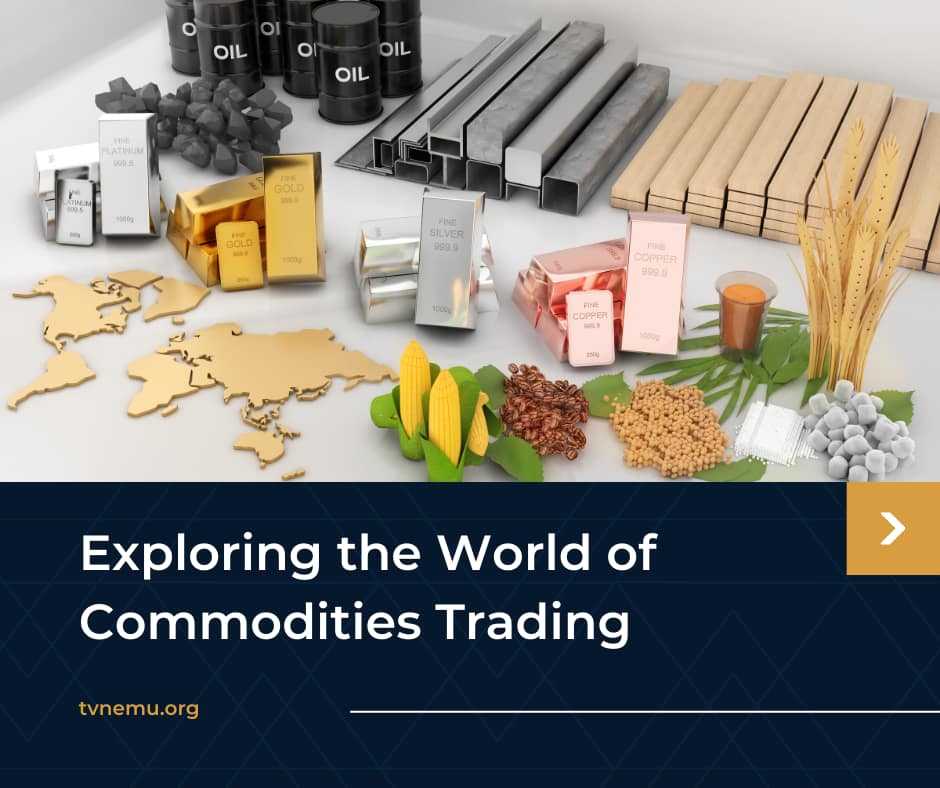
Commodities trading is a fascinating and dynamic component of the global financial markets, offering investors the opportunity to trade goods like gold, oil, and agricultural products. Unlike stocks and bonds, commodities are tangible assets that everyone uses in their daily lives, making their trading an essential activity for economies worldwide. This article serves as an introduction to commodities trading, highlighting its risks, benefits, and how beginners can get started in this vibrant market.
Understanding Commodities Trading
Commodities are basic goods or raw materials used to create a functional economy, ranging from metals and energy sources to agricultural products. Trading in commodities means buying and selling these goods to profit from their price fluctuations.
Types of Commodities
- Hard Commodities: These include natural resources that are mined or extracted, such as gold, oil, and natural gas.
- Soft Commodities: Agricultural products like wheat, coffee, sugar, and livestock.
Benefits of Commodities Trading
- Diversification: Including commodities in your investment portfolio can reduce risk, as their prices often move independently from stocks and bonds.
- Inflation Protection: Commodities prices typically rise with inflation, making them a valuable hedge against the decreasing purchasing power of money.
- Profit Opportunities: The commodities market can offer significant profit opportunities due to the volatility in prices driven by supply and demand factors.
Risks Involved
Like all investment opportunities, commodities trading comes with its set of risks:
- Market Volatility: Prices can be highly volatile, influenced by weather, political events, and changes in supply and demand.
- Leverage Risks: Many traders use leverage to amplify their potential returns, which can also increase potential losses.
- Complexity: The commodities market can be complex, with many factors affecting prices, requiring thorough research and understanding.
Getting Started in Commodities Trading
Educate Yourself
Before diving into commodities trading, gaining a solid understanding of the market is crucial. This includes learning about the different types of commodities, how markets operate, and factors that influence prices.
Choose a Broker
You’ll need a broker to trade commodities. Look for brokers who specialize in commodities trading and offer educational resources for beginners. It’s important to compare fees, platforms, and the level of customer support offered.
Start with a Practice Account
Many brokers offer demo or practice accounts that let you simulate commodities trading with virtual money. This is an excellent way to gain experience without risking actual capital.
Develop a Trading Strategy
Successful trading requires a well-thought-out strategy based on market analysis, risk assessment, and clear objectives. Whether you focus on technical analysis, fundamental analysis, or a combination of both, consistency is key to long-term success.
For those interested in broader financial strategies beyond commodities trading, Building a Solid Financial Foundation in Your 30s provides comprehensive guidance on creating a balanced and diversified investment portfolio.
Conclusion
Commodities trading offers a world of opportunities for those willing to navigate its complexities and inherent risks. By understanding the market, starting small, and continuously learning, investors can potentially reap significant rewards. Remember, as with any investment, commodities trading requires patience, discipline, and a well-defined strategy to succeed in the long term.